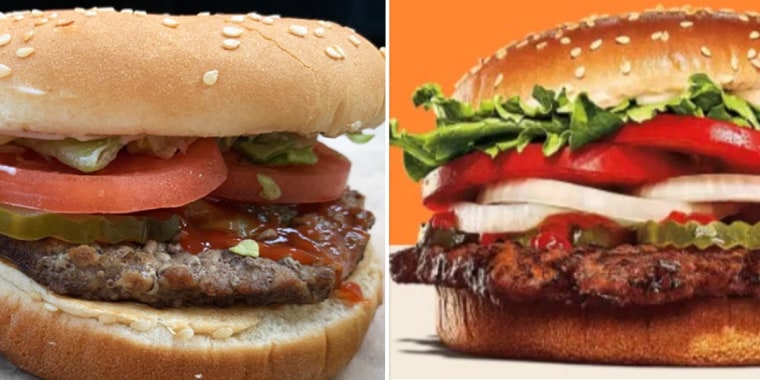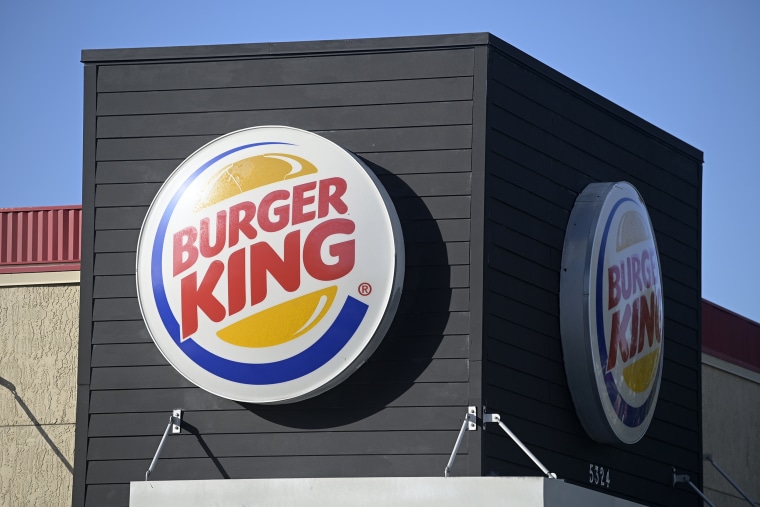It's not the kind of Whopper Burger King wants to be associated with.
A South Florida lawyer has filed a federal lawsuit seeking class-action status alleging that Burger King has misled customers by portraying its food as being much larger compared with what it has served to customers in real life.
The suit, brought by attorney Anthony Russo, alleges Burger King began inflating the size of its burgers in images around September 2017. Before that, the suit claims, Burger King "more fairly" advertised its food products.
Today, the size of virtually every food item advertised by Burger King is "materially overstated," the lawsuit says. Russo and the plaintiffs he is representing single out advertisements for Burger King’s trademark Whopper, saying the entire burger is 35 percent larger than the real-life version, with double the meat than what is actually served.

The suit cites as witnesses multiple YouTube users who specialize in food reviews and Twitter users who complained about their orders.
It's not the first time Burger King has been accused of inflating food in its ads. The United Kingdom's advertising authority cited the company 12 years ago for burgers that had height and thickness "considerably less" than what was advertised.
The suit, which seeks class-action status, demands monetary damages and a court order requiring Burger King to end what it says are its deceptive practices.
Representatives for Burger King and its parent company, Restaurant Brands International, didn’t immediately respond to an emailed request for comment.
Jonathan Maze, the editor in chief of Restaurant Business magazine, said that while lawsuits against fast-food companies like Russo's may seem to lack merit, they can sometimes scare company executives into paying settlements "when they fear bad publicity."
In 2020, a California judge approved a $6.5 million settlement in a class-action lawsuit filed against Chipotle over what was alleged to be a misleading non-GMO advertising campaign.
"Big or small, justice is justice, and laws are laws," Russo said, "and just because something happens to appear in someone’s opinion to be minor doesn’t mean that it is."
He said he was seeking greater transparency in industry advertising more broadly.
"If I’m advertising a vehicle, you don’t Photoshop it to enhance it," he said. "Sure, maybe you shoot it in its best light, but certainly you don’t make it misleading. That’s really the basis for these kinds of lawsuits."

